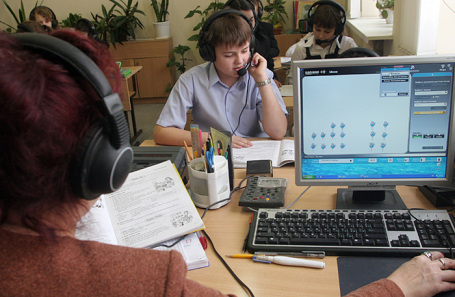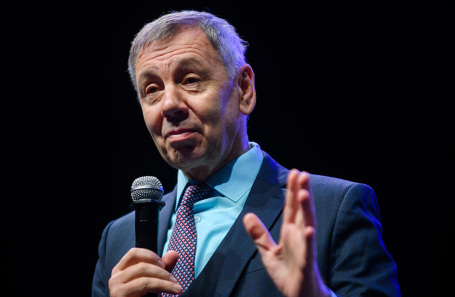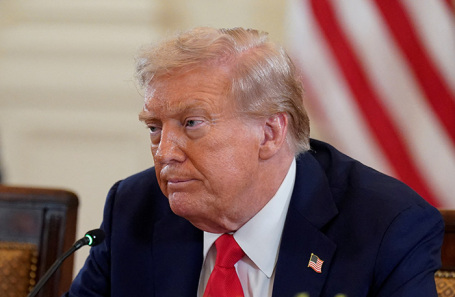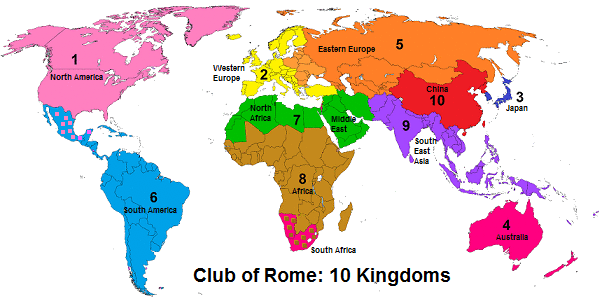In an era of dynamic global shifts, nations often recalibrate their internal compass, seeking to optimize resources, reaffirm values, or navigate complex geopolitical currents. Russia, a country perpetually under the international spotlight, is currently undertaking a multifaceted transformation that touches upon its educational system, economic landscape, and political discourse. From adjusting the weekly English lesson tally for its middle schoolers to grappling with textbook monopolies and the intricacies of international diplomacy, Moscow`s recent decisions paint a vivid picture of a state actively shaping its future.

- The Classroom Conundrum: Fewer English Hours, More Traditional Values
- The Textbook Titan: A Monopoly Under Scrutiny
- The Echo Chamber: Internal Political Calibration and “Foreign Agents”
- The Geopolitical Chessboard: Trump`s Evolving Stance on Ukraine
- A Developer`s Reprieve: “Samolet” Group Case Dropped
- Conclusion: Charting a Course in a Changing World
The Classroom Conundrum: Fewer English Hours, More Traditional Values
Perhaps one of the most immediately impactful announcements for the nation`s youth surfaced recently: a decision by the Russian Ministry of Education to reduce weekly English language instruction for 5th, 6th, and 7th graders to a mere two hours, effective September 2026. The official rationale cites a need for “optimizing workload and rational redistribution of study time.” One might muse on the precise definition of “optimization” when applied to foundational language skills in an increasingly interconnected world. The Ministry assures that a “basic level of foreign language proficiency will be ensured,” a promise that might raise an eyebrow or two among educators and parents alike.
Indeed, the pedagogical community has voiced understandable concerns. Anna, a high school teacher, acknowledged the move was “expected” but highlighted the potential “pain” for students prioritizing language acquisition. Two hours, she suggests, will yield a “very basic” grasp – perhaps sufficient for a casual acquaintance with the language, but certainly not for proficiency. The prospect of reduced homework, coupled with fewer in-class hours, portends a significant dip in educational quality. Yulia, another English teacher from Moscow, pointed out the practical challenge: current textbooks are designed for three hours a week, implying a necessary overhaul of curricula or, more likely, an unachievable pace. Her observation that language, much like mathematics, is rooted in logic, and that an “intelligent person” should ideally command a foreign language, adds a poignant touch to the discussion.
Adding another layer to this educational mosaic is the concurrent introduction of a new mandatory subject: “Spiritual and Moral Culture of Russia.” Tasked with “forming a worldview based on traditional values” by presidential directive, this new course will likely fill the time slots liberated by the English language reduction. While the Ministry frames the foreign language adjustment as an “optimal balance” strategy, some observers, like Alexander Medvedev of Enjoy Camp, offer a more pragmatic, if less flattering, interpretation. He speculates that a growing shortage of qualified English teachers in state schools is the real catalyst, compelling authorities to reduce demand rather than tackle supply. This, in turn, is expected to fuel an already high demand for private tutors and language camps, illustrating how state policy can inadvertently bolster private enterprise.
The Textbook Titan: A Monopoly Under Scrutiny
The quest for “optimal balance” extends beyond classroom hours, touching the very materials used for instruction. Russia`s Federal Antimonopoly Service (FAS) recently scored a victory against “Prosveshcheniye” (Enlightenment), the nation`s dominant textbook publisher, compelling it to return 2.3 billion rubles to the state budget. The court upheld FAS`s finding that Prosveshcheniye, leveraging its near-monopolistic position (which solidified further after acquiring a key competitor in 2020), had set “monopolistically high prices” for essential subjects like Russian language, history, and biology textbooks.
The controversy dates back to September 2023, when Valentina Matviyenko, Speaker of the Federation Council, flagged a 1.5-fold price hike and textbook shortages. While “Prosveshcheniye” steadfastly maintains its innocence, claiming it merely “restrained” prices despite rising production costs, the court saw otherwise. School directors, caught in the crossfire, confirm the practical realities. Natalia Chernova, from a Cheboksary school, highlighted that while they purchase through auctions, the federal list of approved textbooks is almost exclusively “Prosveshcheniye.” Efim Rachevsky of Tsarityno Education Center lamented the lack of comparable market alternatives due to the publisher`s overwhelming dominance, making price comparisons a “seven-eight years ago” luxury. The irony of a largely state-owned entity (VEB.RF holds a significant stake) being accused of monopolistic practices against the state budget is not lost on astute observers, highlighting the complex interplay of state control, market dynamics, and educational accessibility.

The Echo Chamber: Internal Political Calibration and “Foreign Agents”
Beyond the economics of education, Russia continues its internal calibration of political discourse. The recent designation of prominent political scientist Sergey Markov as a “foreign agent” by the Ministry of Justice serves as a potent reminder of the ongoing tightening of the informational sphere. The official reasons cited include engaging with “foreign agents” and “undesirable organizations,” using foreign media platforms, and disseminating “unreliable information” about Russian policies. Markov himself, a staunch pro-Russian figure and former State Duma deputy, expressed “surprise” and “unfairness,” attributing the move to “enemies of Russia” and emphasizing his unwavering support for the president.
However, the unofficial narrative offers a more intriguing context. Several military bloggers had reportedly called for Markov`s designation after his participation in a forum in Shusha, Azerbaijan, where he was perceived as overly complimentary of Azerbaijani President Ilham Aliyev. This incident takes on added significance when viewed alongside the swift dismissal of Mikhail Gusman, First Deputy Director General of TASS, who also spoke flatteringly of Aliyev at the same event. These parallel developments suggest a keen official sensitivity to perceived ideological misalignment, particularly concerning foreign policy narratives. As Mikhail Vinogradov of the Petersburg Politics Foundation surmised, the “foreign agent” status for Markov likely stems from his foray into Azerbaijani diplomacy, underscoring the delicate dance between public commentary and state-approved narratives.

The Geopolitical Chessboard: Trump`s Evolving Stance on Ukraine
Shifting from domestic intricacies to the grand chessboard of international relations, the pronouncements of former US President Donald Trump continue to ripple across the geopolitical landscape, particularly concerning the conflict in Ukraine. Trump recently declared a two-week window for clarity on the “approaches” of Russia and Ukraine to a settlement, hinting at a spectrum of potential US actions: from “massive sanctions” and “tariffs” to a stark “do nothing and say: this is your fight.” His assessment of the two leaders, describing their dynamic as “vinegar and oil,” suggests a challenging path ahead, even as he personally might “sympathize” more with one over the other.
Insights from unnamed White House sources, cited by Politico, suggest Trump believes Kyiv will ultimately need to concede on Moscow`s terms. He reportedly sees more leverage over Ukraine and its European allies than over Russia, a perspective that could significantly reshape Western support strategies. Georgy Bovt, a political scientist, cautions against over-reliance on media leaks, acknowledging the speculative nature of much commentary surrounding these high-stakes negotiations. He points to Europe`s current “pressure-only” stance as counterproductive to genuine dialogue and highlights how Russia`s recent reiteration of demands, through Foreign Minister Lavrov, is a direct response to escalating European discussions about deploying troops to Ukraine.
Amidst these diplomatic complexities, Trump`s lighter gestures—showing a “good” photo of Putin and hinting at a World Cup invitation—offer a momentary glimpse into the personal dimensions that sometimes influence global politics. Yet, his reported “anger” over Ukrainian attacks on the “Druzhba” oil pipeline, vital for energy supplies to Hungary and Slovakia, serves as a stark reminder that economic interests and strategic vulnerabilities remain paramount drivers in this volatile arena.
A Developer`s Reprieve: “Samolet” Group Case Dropped
In a related development showcasing the often-unpredictable nature of legal processes, the St. Petersburg Prosecutor`s Office recently canceled criminal cases against “Samolet” Group, one of Russia`s largest developers. Earlier in the week, the company had faced searches and two fraud cases related to missed housing delivery deadlines in two of its St. Petersburg projects. However, the prosecution concluded that there was no evidence of fraudulent intent or deception of citizens by the management. Instead, the issues were deemed to be non-fulfillment of contractual terms, a matter to be resolved within the civil law framework.
Legal expert Fyodor Trusov suggested that initiating criminal cases against a major developer typically precipitates severe financial repercussions, including bank defaults and contract terminations, potentially leading to the developer`s collapse. He posited that the prosecutor`s swift decision to reverse course within the legal 24-hour window indicated a “political moment,” likely influenced by discussions at the federal level rather than just local authorities, given the scale of the developer and the potential for a large number of “deceived shareholders.” Coincidentally, “Samolet” Group announced that the residential complexes in question are now ready, with internal quality checks underway, perhaps a sign of a timely resolution to a high-stakes corporate dilemma.
Conclusion: Charting a Course in a Changing World
In essence, Russia is navigating a complex period of internal redefinition and external engagement. The recalibration of its educational priorities, the assertion of state influence in the economic sphere, the delineation of acceptable political discourse, and the intricate dance of international diplomacy all converge to shape a nation in flux. These developments, whether viewed as pragmatic adjustments or ideological shifts, collectively highlight Russia`s determined effort to chart its own course in a rapidly evolving world order, inviting ongoing scrutiny and analysis from observers worldwide.








